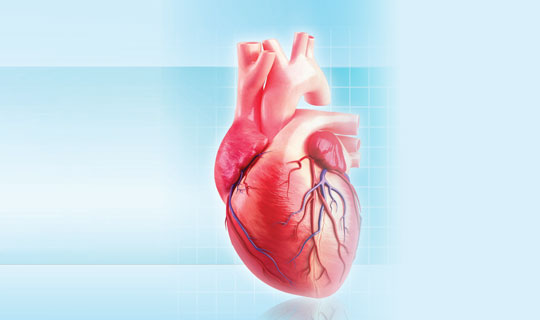
Specialized techniques offer new options for people with valve disease and aortic aneurysms.
Three out of five people nationwide are expected to have some form of heart disease by 2050, making cardiovascular care one of medicine’s most important frontiers for fresh and groundbreaking treatments.
Many people will develop common and familiar conditions such as coronary artery disease and stroke. But lesser-known—and often complex—conditions are also important targets for innovation and advanced techniques.
At RWJBarnabas Health, new breakthroughs in care are emerging to help fix some of the most complex and difficult conditions of the cardiovascular system.
Advances that surgeons at the health system are spearheading include minimally invasive surgery to repair or replace faulty heart valves and specialized techniques to treat thoracic (mid-body) aortic aneurysms.
State-of-the-Art Valve Surgery
More than 5 million people receive a diagnosis of valvular heart disease each year. Until recently, the only way to repair or replace a malfunctioning heart valve was through traditional open heart surgery. That meant doctors had to access the heart by making a large incision down the middle of the chest, dividing the breastbone and opening the chest.

Today, RWJBarnabas Health surgeons are at the forefront of minimally invasive approaches. “We refer to it as minimalist surgery because we’ve been able to push the boundaries of care successfully to benefit our patients beyond just the incision size,” says cardiac surgeon Leonard Y. Lee, MD, Chief of Surgical Services at Robert Wood Johnson University Hospital (RWJUH), an RWJBarnabas Health facility, and James W. Mackenzie, MD, Professor and Chair, Department of Surgery at Rutgers Robert Wood Johnson Medical School.
“Only about 12 percent of practicing cardiac surgeons perform these types of minimally invasive valve procedures.” Valve disease can occur when the mitral or aortic valves of the heart fail to close properly (a condition called regurgitation) or when they stiffen and narrow (stenosis). Both conditions impede blood flow from the heart to the rest of the body.
To repair or replace the mitral or aortic valve using a minimally invasive technique, Dr. Lee and his colleagues make just a small, 2-inch incision on the right side of the chest to go between the ribs without breaking or removing ribs to gain access to the heart. The entire operation takes only two hours. Most patients are out of bed and sitting in a chair two hours after the procedure, and are walking around later that same evening.
“I’ve had patients return to work in as little as two weeks after a two-day hospital stay and a couple of weeks’ recovery at home,” says Dr. Lee, a member of RWJBarnabas Health Medical Group. “Best of all, the minimally invasive approach is just as effective as standard open surgery and entails less risk of complications.”
Anyone with valve disease and an otherwise healthy heart may benefit from minimally invasive valve surgery. It’s generally not an option for people who have additional heart problems such as coronary artery disease or aneurysms.
Complex Aneurysm Repairs
Aortic aneurysms are bulges that occur in the ascending aorta (the part of this large, cane-shaped artery that arches upward from the heart) or the descending aorta (the part that arches downward to the rest of the body).
Though potentially serious, aortic aneurysms often grow silently, without any symptoms. They can be especially serious—even fatal—if they rupture or cause the inner and outer linings of the aorta to separate, causing what is known as aortic dissection.
While thoracic aortic aneurysms are relatively rare, people with genetic conditions such as Marfan syndrome are at higher risk for developing them. Marfan and other connective tissue disorders cause deficiencies in the body’s production of collagen, a structural protein.
“Similar to the way steel gives tall buildings their structure, collagen gives structure to our body’s organs and strengthens the heart, joints, bones and eyes,” Dr. Lee says. In people with Marfan syndrome, a lack of collagen can cause weakness in the walls of the aorta, which can lead to aneurysms.
“For these reasons, people with Marfan syndrome and other connective tissue disorders should be followed and monitored closely by medical centers like ours that can care for their unique needs,” Dr. Lee says.
If an aneurysm occurs, specialists at RWJBarnabas Health use a team approach that entails collaboration between cardiothoracic and vascular surgeons.
For ascending aortic aneurysms, open heart surgery remains the preferred approach. During the procedure, surgeons remove the aneurysm and use polyester graft to repair the damaged section of the aorta.
For descending aortic aneurysms, a minimally invasive endovascular technique performed using a mesh framework called a stent graft is the preferred approach. “We use X-ray guidance to feed a catheter inside the descending aorta, then deploy a stent to take the pressure off the aortic wall and restore blood flow,” Dr. Lee says. RWJBarnabas Health also performs revision surgery for patients who have recurring thoracic aortic aneurysms.
“We work closely with our vascular surgeons and have pioneered hybrid approaches that allow us to deliver the highest-quality surgical care for the most complex aneurysm cases,” Dr. Lee says.
A Regional Referral Center
RWJBarnabas Health is home to one of the largest heart surgery centers in the Northeast, performing about 1,700 procedures each year. “About 40 percent of our patients come to us from other hospitals in New Jersey and even from other states,” says Dr. Lee.
Dr. Lee estimates that RWJUH performs more than 200 minimally invasive cardiac valve procedures annually and an equal number of complex thoracic aortic aneurysm surgeries as part of its total cardiac surgical volume of 1,700 cases per year. In addition, Rutgers Robert Wood Johnson Medical School, with RWJUH, is one of only two institutions in New Jersey that are recognized as referral centers by the Marfan Foundation.
No one plans on heart disease, but everyone should have a plan for it. Connect with an RWJBarnabas Health heart and vascular specialist at 888-724-7123 or visit our Heart and Vascular Care page.
